A short term lease agreement template is a vital tool for both landlords and tenants looking to establish clear rental terms for a temporary living arrangement. Whether you are renting out a property for a few months or looking to lease a space for a short-term project, having a written agreement in place can help protect both parties and prevent misunderstandings down the line.
What is a Short Term Lease Agreement Template?
A short term lease agreement template is a pre-written document that outlines the terms and conditions of a temporary rental agreement between a landlord and tenant. This template typically includes details such as the duration of the lease, rent amount, security deposit, maintenance responsibilities, and any specific rules or restrictions that both parties must adhere to during the rental period.
The Purpose of a Short Term Lease Agreement Template

Image Source: signaturely.com
The main purpose of a short term lease agreement template is to clearly define the rights and obligations of both the landlord and tenant during the rental period. By having a written document in place, both parties can refer back to the agreement if any disputes or issues arise. This can help prevent misunderstandings and ensure that everyone is on the same page regarding the terms of the rental.
Why You Need a Short Term Lease Agreement Template
Having a short term lease agreement template is essential for protecting your interests as a landlord or tenant. Without a written agreement, it can be difficult to enforce the terms of the rental or resolve disputes that may arise. By using a template, you can easily customize the document to suit your specific needs and ensure that all parties are clear on their responsibilities.
How to Create a Short Term Lease Agreement Template
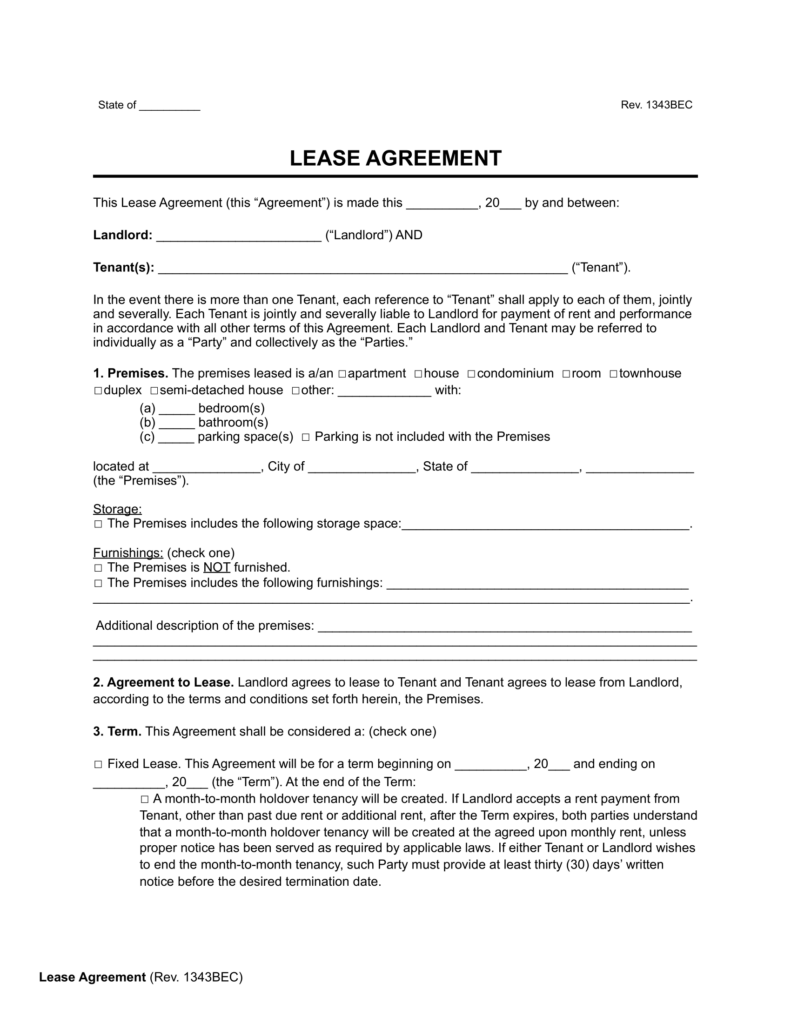
Image Source: legaltemplates.net
Creating a short term lease agreement template is a straightforward process that involves outlining the key terms and conditions of the rental agreement. You can either create your own template from scratch or use a pre-written template available online. When creating a template, be sure to include all relevant details such as the names of the parties involved, the rental property address, the rental amount, and any specific rules or regulations that need to be followed.
1. Include Basic Information
Start by including basic information such as the names of the landlord and tenant, the address of the rental property, the duration of the lease, and the rental amount.
2. Outline Terms and Conditions
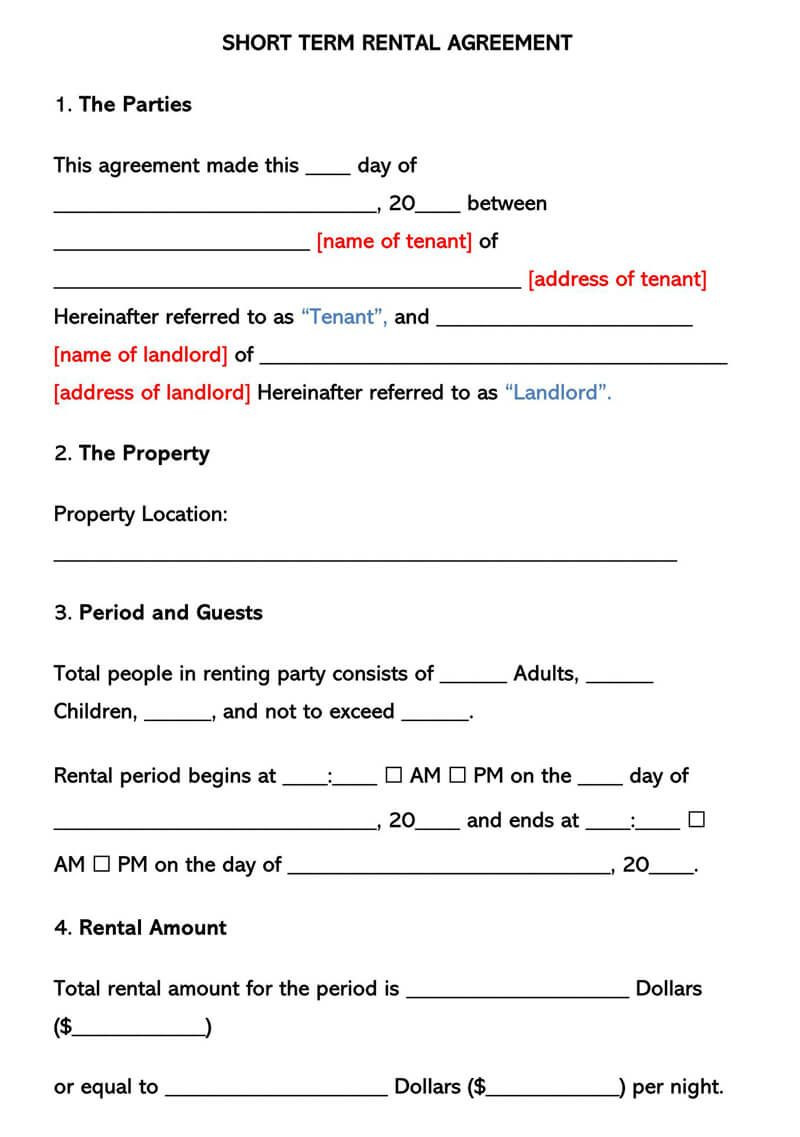
Image Source: pinimg.com
Clearly outline the terms and conditions of the rental agreement, including rules regarding pets, smoking, maintenance responsibilities, and any other specific requirements.
3. Include Financial Terms
Detail the financial terms of the rental agreement, including the amount of rent, due date, security deposit amount, and any additional fees or charges that may apply.
4. Specify Maintenance Responsibilities
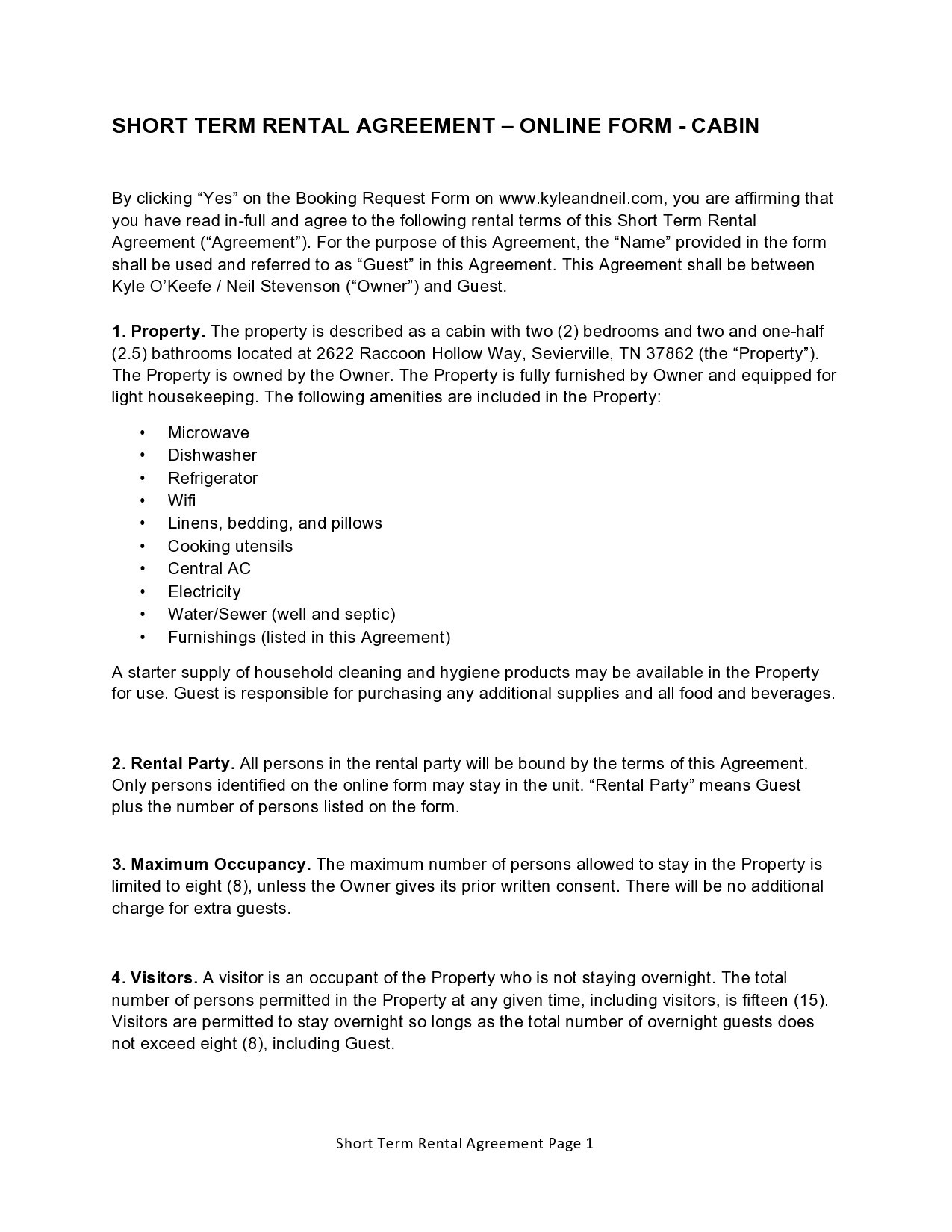
Image Source: templatelab.com
Specify who is responsible for maintenance and repairs during the rental period, including routine upkeep and emergency repairs.
5. Include Rules and Regulations
Include any rules and regulations that both parties must follow during the rental period, such as noise restrictions, guest policies, and parking regulations.
6. Address Termination Procedures
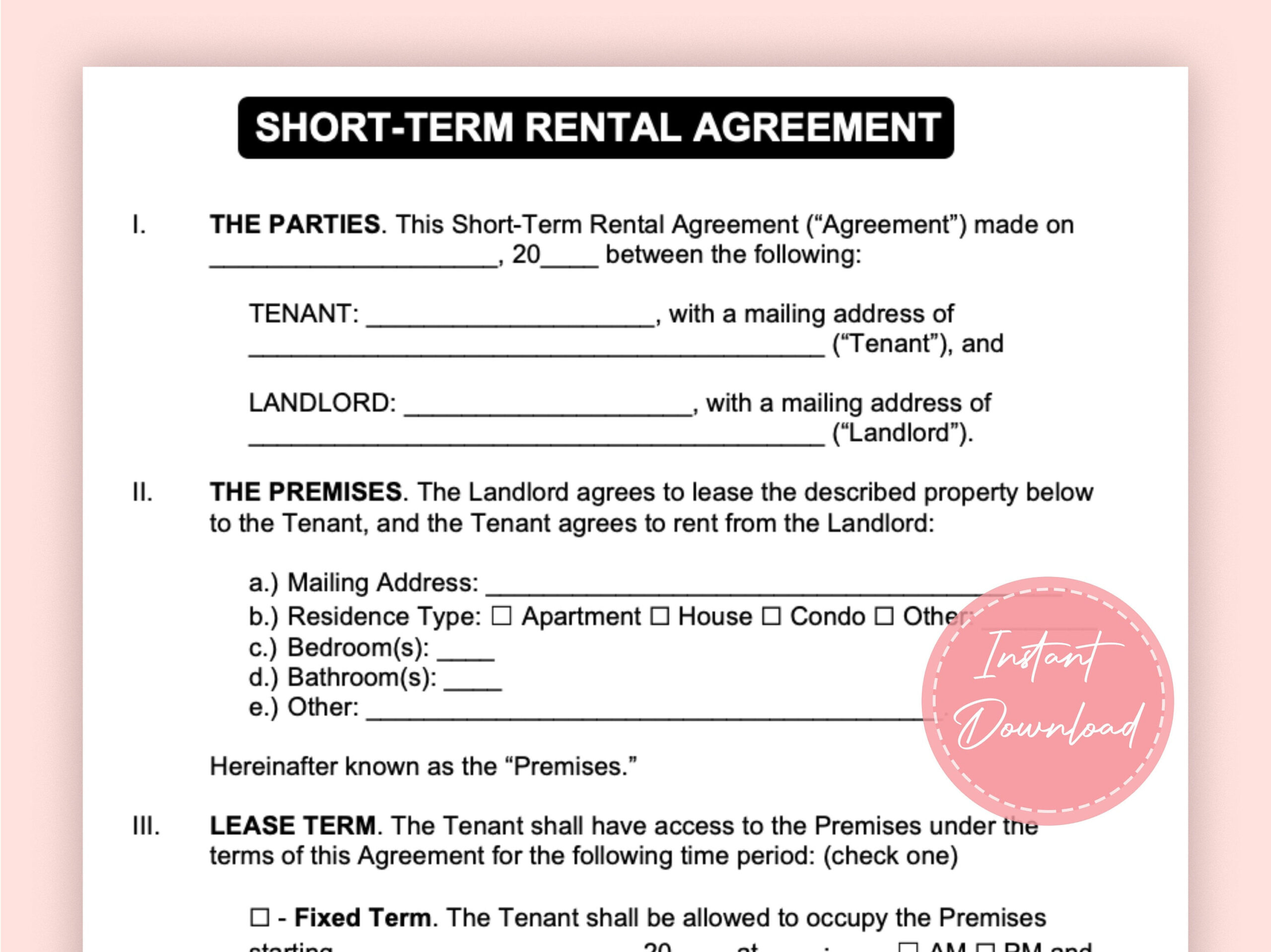
Image Source: etsystatic.com
Outline the procedures for terminating the lease agreement, including notice requirements and any penalties for early termination.
7. Include Signature Lines
Be sure to include signature lines for both the landlord and tenant to sign, indicating their agreement to the terms and conditions of the rental agreement.
8. Review and Revise as Needed
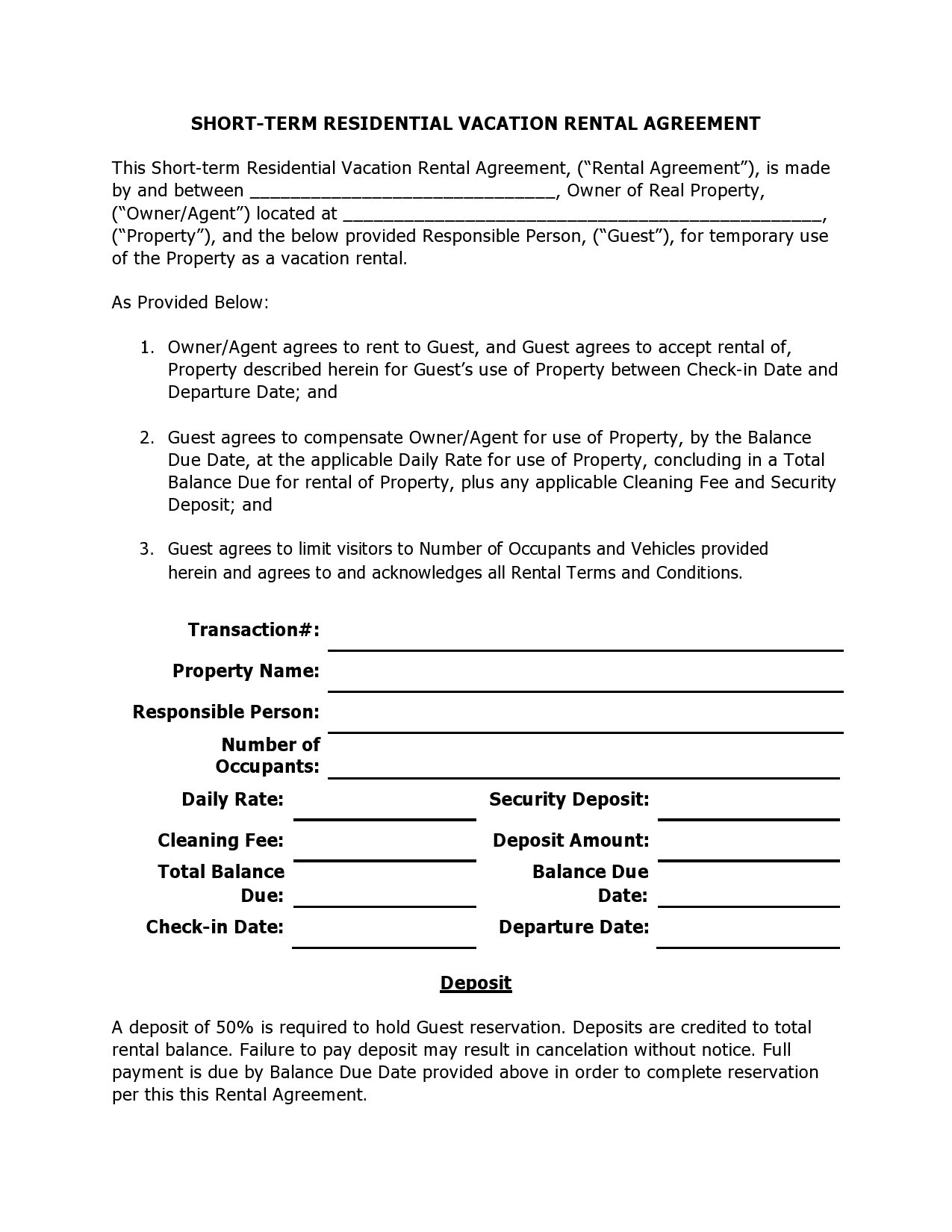
Image Source: templatelab.com
Once the template is complete, be sure to review it carefully and make any necessary revisions to ensure that all details are accurate and up to date.
Tips for Successful Short Term Lease Agreements
Communicate Clearly: Ensure that all terms and conditions are clearly outlined in the agreement to avoid any misunderstandings.
Get Everything in Writing: Always put any agreements or changes in writing to protect both parties in case of disputes.
Be Flexible: Consider including provisions for early termination or lease extensions to accommodate changing circumstances.
Seek Legal Advice: If you are unsure about any legal aspects of the agreement, consider seeking advice from a legal professional.
Keep Records: Keep a copy of the signed agreement and any related documents for your records in case they are needed in the future.
Update Regularly: Review and update the agreement as needed to reflect any changes in rental terms or regulations.
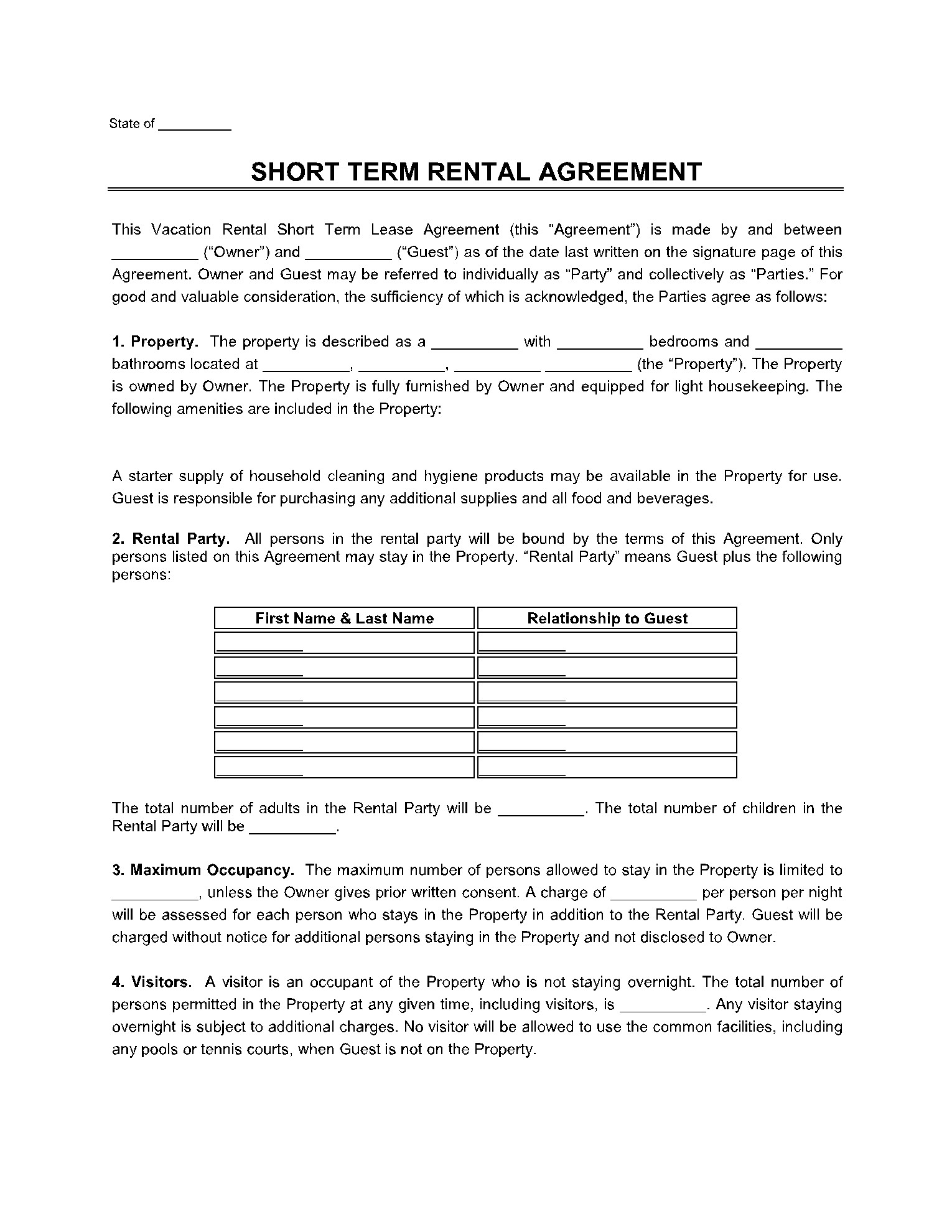
Image Source: cocosign.com

Image Source: legaltemplates.net
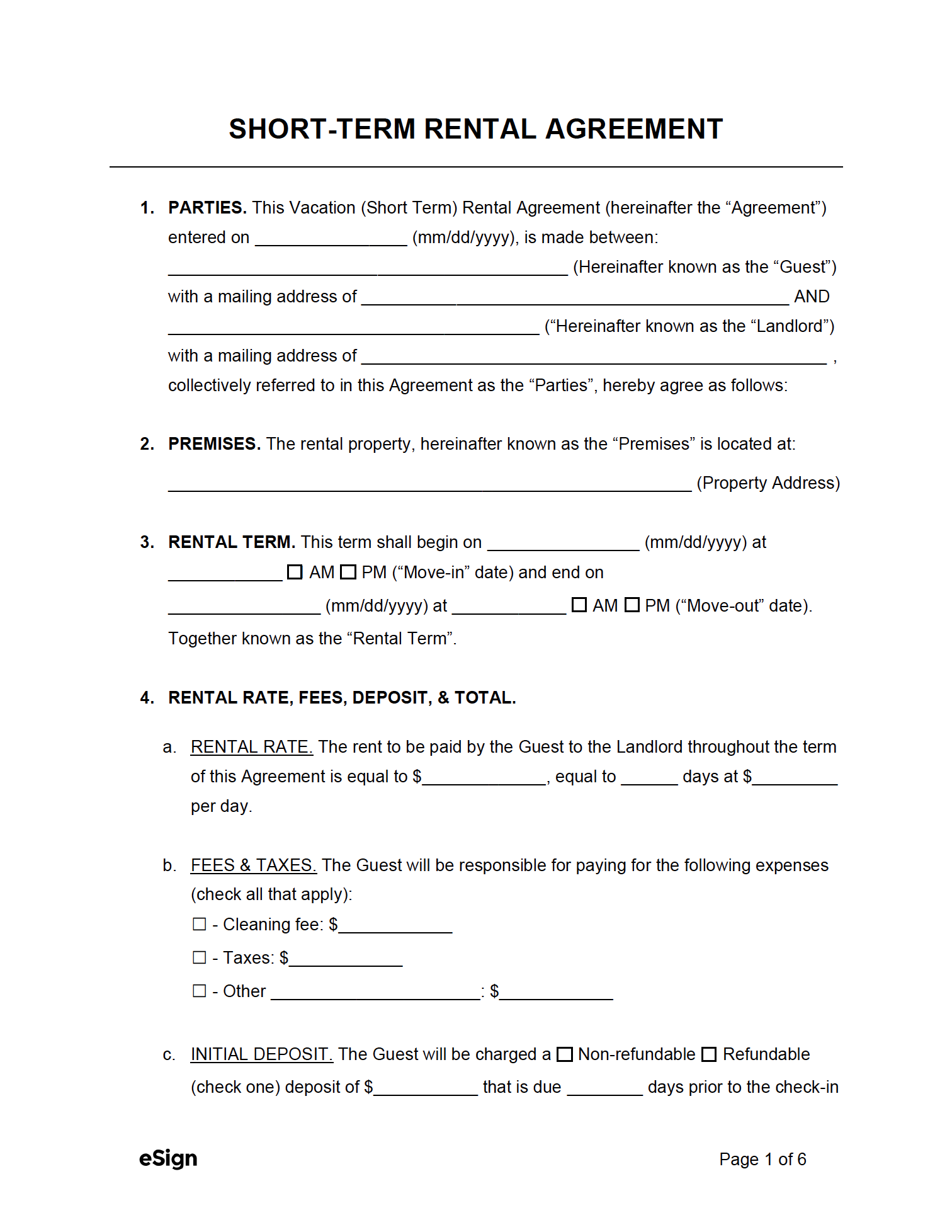
Image Source: esign.com